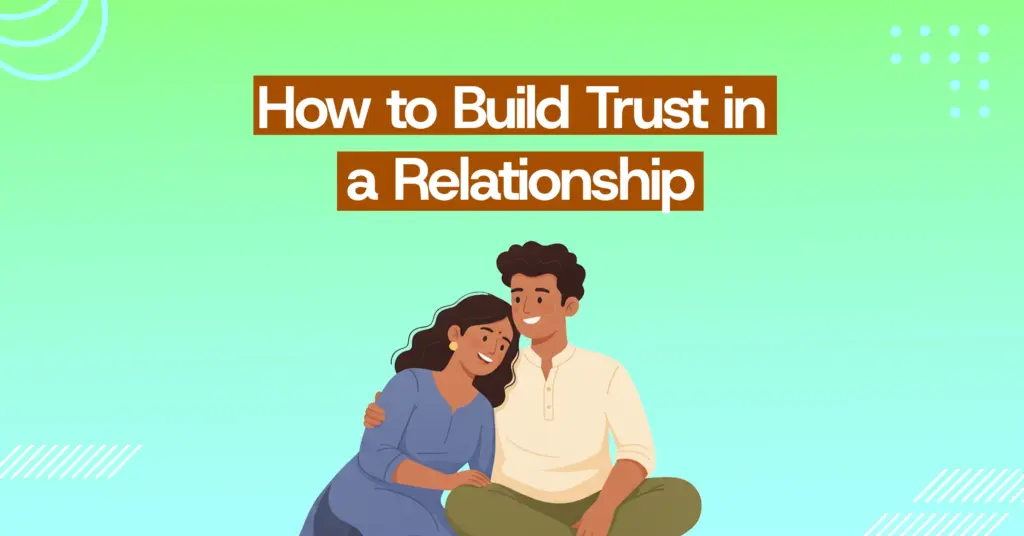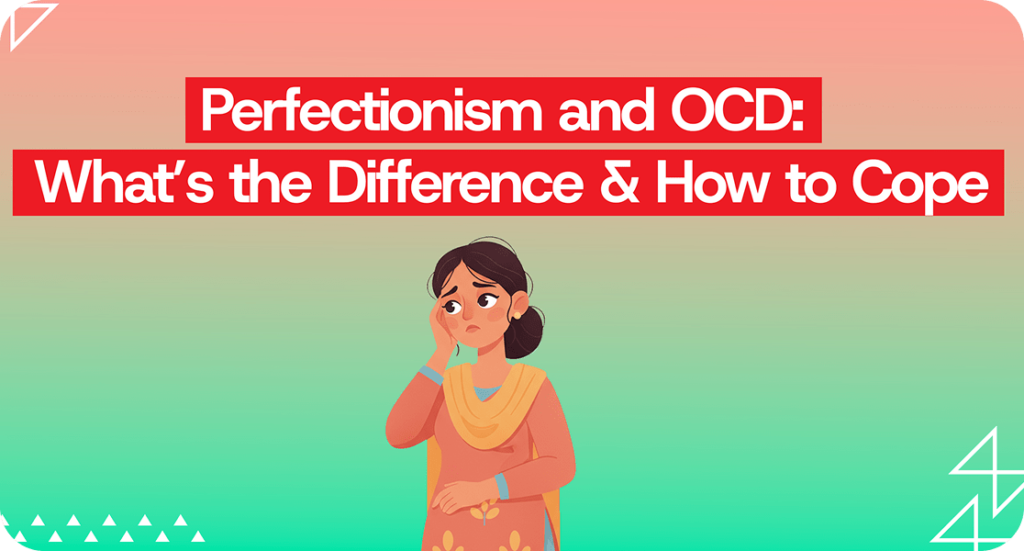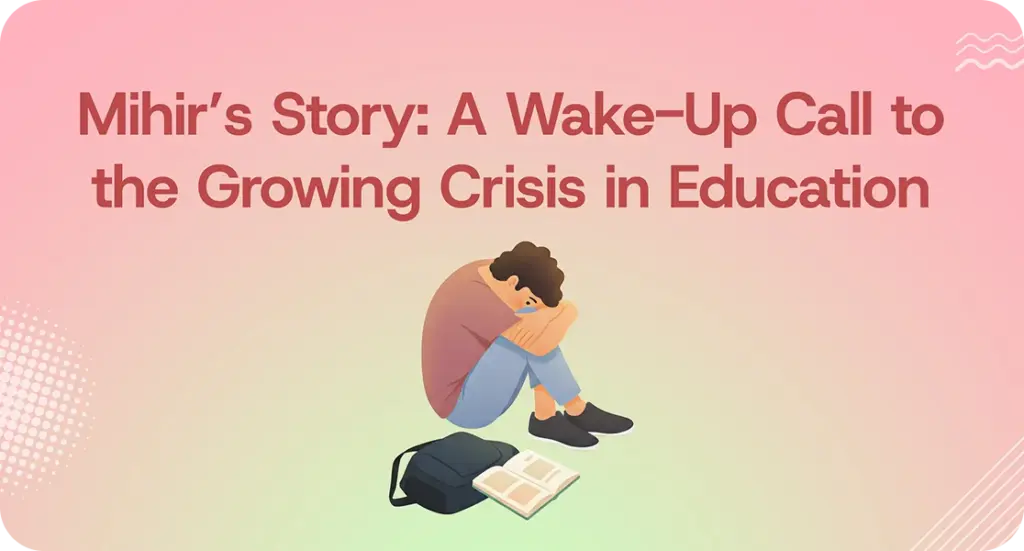
Trust is the foundation of any relationship, and it’s essential for maintaining a healthy relationship. If one partner discovers that the other is hiding something or cheating, it can be a significant blow to the relationship. Over time, this lack of trust can affect the very existence of the relationship.
Trust is the foundation of any relationship, and it’s essential for maintaining a healthy relationship. If one partner discovers that the other is hiding something or cheating, it can be a significant blow to the relationship. Over time, this lack of trust can affect the very existence of the relationship.
Let’s consider two different situations:
In a relationship, partners A and B were initially getting along well. However, A often failed to show emotional connection with B, and was unavailable when B needed them. Over time, B started to keep a distance from A and didn’t show emotional intimacy. As a result, B’s trust in A began to erode, leading to a state of distrust. This ultimately caused cracks in the relationship.
Let’s analyze the second situation, using the example of partners A and B.
In this scenario, B discovers that A is consistently lying, dishonest, and hiding things from them. However, in the initial stages, B doesn’t confront A about these issues or ask for explanations. But as B notices A breaking promises and not fulfilling commitments, their trust in A begins to erode. This can lead to significant problems in the relationship and potentially even end it.
Need to Talk to Someone?
Book a private online session with a licensed therapist
Building trust in a relationship is a challenging and effort-requiring process that demands commitment and consistency. However, the effort you put in helps make the relationship long-lasting and reduces conflicts.
How to Build Trust in Relationship

Communication
Effective communication is crucial in any relationship. When partners communicate clearly, they can understand each other’s interests, preferences, and boundaries.
1. Be Honest and Transparent
Merely communicating is not enough; honest and transparent communication is essential to build trust. Sharing thoughts, feelings, and actions openly and honestly with your partner is vital.
2. Listen Actively
Listening actively to your partner is as important as communicating. It helps create a clear understanding of your partner’s perspective. You should be able to listen to your partner and respond empathetically.
3. Use "I" Statements
In relationships, blame and defensiveness can arise. Using “I” statements to express thoughts and feelings can help reduce blame and defensiveness.
Reliability and Dependability
1. Follow Through on Commitments
In a relationship, making promises and commitments is common. However, forgetting or breaking these promises can damage trust. Following through on commitments and keeping promises is crucial in building trust.
2. Be Consistent
Consistency is essential in any aspect of life, including relationships. Being consistent in your words and actions helps build trust and strengthens your relationship. Establishing a routine and sticking to it can be beneficial.
3. Show Up When It Matters
Your partner may need your support and presence during challenging times or emotional moments. Being emotionally available and present during these times is vital. Failing to do so can erode trust and make your partner feel unsupported.
Emotional Intelligence
1. Recognize and Validate Emotions
It’s essential to acknowledge and validate your partner’s feelings, even if you don’t agree with their perspective. This helps create a sense of comfort and trust in the relationship.
2. Practice Empathy
Empathy is crucial in relationships. It involves putting yourself in your partner’s shoes and understanding their thoughts, feelings, and perspectives. This helps you respond compassionately and build a stronger connection.
3. Manage Your Emotions
Emotional regulation is vital in relationships. When you’re unable to control your emotions, it can lead to problems in your interactions with your partner. Learning to regulate your emotions and respond thoughtfully can make a significant difference.
Building Trust through Forgiveness and Understanding
1. Practice Forgiveness
In a relationship, it’s essential to practice forgiveness and let go of grudges. Holding onto past issues can create more problems and damage trust. Forgiveness helps to release negative emotions and move forward.
2. Seek Understanding
It’s crucial to consider your partner’s perspective and actions, rather than just focusing on your own point of view. Seeking understanding helps to build empathy and strengthen your relationship.
3. Apologize Sincerely
When apologizing for mistakes, it’s essential to be genuine and sincere. A heartfelt apology can help to repair damage and rebuild trust. An insincere apology, on the other hand, can do more harm than good.
Vulnerability and Individuality
1. Be Vulnerable
In a relationship, it’s essential to be open and share your fears, hopes, desires, and needs with your partner. This helps build trust and creates a deeper connection.
2. Create a Safe Space
Establishing a safe and comfortable environment where you and your partner can openly communicate is crucial. This helps to increase intimacy and understanding in your relationship.
3. Show Affection and Appreciation
Expressing gratitude and affection towards your partner is vital. Withholding emotions and not expressing love and appreciation can lead to a lack of trust and intimacy in your relationship.
Time and Effort
1. Invest Time and Effort
In life, we have many tasks to accomplish, and it’s essential to prioritize our relationships. By investing time and effort into our relationships, we show our partner that we value and care for them. This helps build trust and strengthens our bond.
2. Be Patient
Building trust takes time, and it’s essential to be patient and consistent in our efforts. We should avoid getting frustrated or discouraged, as this can damage our relationship.
3. Celebrate Milestones
Celebrating milestones and successes in our relationship helps to build trust and create a sense of accomplishment. By acknowledging and appreciating our partner’s achievements, we show that we value and support them.
Ways to Rebuild Trust After it's Broken
Rebuilding trust in a relationship is a challenging and time-consuming process. It requires patience, consistency, and a willingness to work through difficulties together. When trust is broken, it can be even harder to rebuild than it was to establish in the first place.
1. Acknowledge and Accept
- The first step in rebuilding trust is to acknowledge and accept that a mistake was made and that your partner was hurt.
- Taking ownership of your actions and recognizing the impact they had on your partner is crucial. Your partner may not be able to forgive you immediately, and it’s essential to understand that rebuilding trust takes time.
- A genuine apology is necessary to start the healing process.
2. Communicate Openly
- Effective communication is vital in any relationship, and it’s especially important when rebuilding trust.
- Openly and honestly sharing your thoughts, feelings, and actions with your partner can help them understand your perspective.
- It’s also essential to listen to your partner’s concerns and be empathetic towards their feelings. Using “I” statements when expressing your feelings can help reduce blame and defensiveness.
3. Reestablish Boundaries
- View challenges as opportunities for growth
- Learn from failures and setbacks
- Stay curious and open-minded
- Navigate life’s challenges with confidence and resilience
4. Rebuild Intimacy
- When trust is present in a relationship, it can increase emotional intimacy and closeness between partners.
- To rebuild trust, it’s essential to focus on rebuilding emotional intimacy. Open communication can help with this process.
- Expressing gratitude and affection towards each other can also make it easier to rebuild intimacy.
- Spending quality time together can also help to rebuild your connection.
5. Foster Transparency and Accountability
- When rebuilding trust, it’s essential to be open and honest in your actions and decisions.
- Taking responsibility for your actions and understanding their impact on your partner can help you become more responsible.
- Being accountable for your actions can also help prevent similar situations from arising in the future.
6. Seek Outside Help
- Rebuilding trust can be a time-consuming and effort-intensive process. Seeking professional help can make a significant difference.
- Considering couples therapy or online relationship counseling can be beneficial. Book an online relationship therapy session at Oppam.
- Additionally, seeking support and guidance from loved ones, friends, or family members can also be helpful.
- Practicing self-care can also help reduce stress and focus on the trust-rebuilding process.
Feeling Overwhelmed?
You’re Not Alone. Get Support from an
Oppam Therapist Wherever You Are
Oppam Therapist Wherever You Are
7. Time and Effort
- Rebuilding trust requires a significant amount of time and effort. Prioritizing the trust-rebuilding process and investing time in your relationship is essential.
- Being patient and consistent in your efforts can help.
- Celebrating small victories and successes along the way can also make a significant difference.
Steps to Develop Trust With Your Partner

Pressure From Various Things:
Step 1: Communicate Openly and Honestly
- Practice active listening: Give your undivided attention to your partner, and respond with empathy.
- Share your thoughts and feelings: Share your thoughts, feelings, and desires openly and honestly with your partner.
- Use ‘I’ statements: Express your feelings and thoughts using ‘I’ statements to avoid blame and defensiveness.
Step 2: Be Reliable and Dependable
- Follow through on commitments: Keep your promises and follow through on commitments.
- Be consistent: Establish a routine and stick to it.
- Show up when it matters: Be present and supportive during important events and challenging times.
Step 3: Build Emotional Intimacy
- Be vulnerable: Share your fears, hopes, and desires openly with your partner.
- Show empathy and understanding: Show empathy and understanding towards your partner’s feelings and needs.
- Foster a sense of safety: Create a sense of safety and security in the relationship.
Step 4: Practice Forgiveness and Understanding
- Practice forgiveness: Let go of grudges and resentments.
- Communicate openly about issues: Communicate openly and honestly about issues and concerns.
- Work through challenges together: Work through challenges and difficulties together.
Step 5: Cultivate Trust-Building Activities
- Engage in trust-building activities: Engage in activities that promote trust, such as sharing secrets or vulnerable thoughts.
- Practice active listening: Practice active listening and empathy to build trust.
- Show appreciation and gratitude: Show appreciation and gratitude towards each other.
Step 6: Seek Outside Help When Needed
- Seek outside help when needed: Seek outside help, such as couples therapy, when needed to work through challenges. couples therapy for rebuilding trust and online relationship counseling for trust issues also helps you to improve your relationship. if you are searching for an affordable mental health platform, then rebuild trust through Oppam counseling.
- Practice self-reflection: Practice self-reflection and self-improvement to become a better partner.
- Celebrate progress: Celebrate progress and successes in building trust.
The Importance of Trust in a Relationship
Trust can be considered a crucial component of a successful and healthy relationship. Let’s explore the significance of trust in a relationship.
1. Foundation of a Healthy Relationship
- Trust can be considered the foundation of a healthy relationship. It plays a significant role in creating a sense of safety and security in a relationship.
- Trust also helps partners feel comfortable and supported, allowing them to be open and honest with each other. This, in turn, promotes emotional intimacy and fosters a deeper connection between partners.
- Trust promotes healthy communication, allowing partners to express themselves freely and honestly.
2. Builds Stronger Bonds
- Trust helps to create a deeper and more meaningful emotional connection between partners.
- It increases feelings of loyalty and commitment and helps partners work together to overcome challenges.
- Trust fosters a sense of teamwork, allowing partners to face challenges together and achieve common goals.
3. Essential for Long-Term Success
- Trust is essential for long-term success in a relationship. It helps partners build a strong and healthy relationship, even in the face of challenges and conflicts.
- Trust creates a sense of stability and security, allowing partners to feel grounded and secure in their relationship.
- It also promotes personal growth and development, giving partners the confidence and support they need to achieve their individual successes.
4. Reduces Conflict and Stress
- Trust can help reduce conflicts in a relationship by promoting open and honest communication.
- It can also help reduce stress and anxiety, creating a more relaxed and peaceful relationship.
- A trusting relationship can promote emotional well-being, making partners feel secure and supported.
- By reducing conflict and stress, trust can help create a more positive and healthy relationship.
Emotional Safety and Trust in Couples
Emotional safety and trust are essential components of a healthy and fulfilling relationship. Here are some key aspects of emotional safety and trust in couples:
1. Emotional safety
- Feeling secure and supported: Partners feel secure and supported in sharing their thoughts, feelings, and desires.
- No fear of judgment or rejection: Partners feel comfortable expressing themselves without fear of judgment or rejection.
- Validation and empathy: Partners feel validated and understood, with empathy and 1compassion.
2. Trust
- Reliability and dependability: Partners trust each other to follow through on commitments and be reliable.
- Honesty and transparency: Partners trust each other to be honest and transparent in their communication and actions.
- Vulnerability and openness: Partners feel comfortable being vulnerable and open with each other.
3. Building Emotional Safety and Trust
- Reliability and dependability: Partners trust each other to follow through on commitments and be reliable.
- Honesty and transparency: Partners trust each other to be honest and transparent in their communication and actions.
- Vulnerability and openness: Partners feel comfortable being vulnerable and open with each other.
4. Benefits of Emotional Safety and Trust
- Deeper connection and intimacy: Emotional safety and trust foster a deeper connection and intimacy.
- Increased feelings of security and stability: Partners feel more secure and stable in their relationship.
- Improved communication and conflict resolution: Emotional safety and trust promote healthy communication and conflict resolution.
- Greater sense of well-being and happiness: Partners experience greater overall well-being and happiness.
5. Challenges to Emotional Safety and Trust
- Past trauma or betrayal: Past experiences can impact trust and emotional safety.
- Communication breakdowns: Poor communication can erode trust and emotional safety.
- Inconsistency and unreliability: Inconsistency and unreliability can damage trust.
- Lack of empathy and validation: Partners may feel unheard or unvalidated.
6. Maintaining Emotional Safety and Trust
- Regular check-ins and communication: Regular communication helps maintain emotional safety and trust.
- Consistency and follow-through: Consistency and follow-through on commitments reinforce trust.
- Empathy and validation: Ongoing empathy and validation foster emotional safety.
- Addressing conflicts and challenges: Partners work together to address conflicts and challenges, maintaining emotional safety and trust.
Trust-building exercise for a relationship
1. Communication Exercises
- Active listening: Practice active listening by giving your undivided attention to your partner, and responding with empathy.
- Open and honest communication: Share your thoughts, feelings, and desires openly and honestly with your partner.
- Use ‘I’ statements: Express your feelings and thoughts using ‘I’ statements to avoid blame and defensiveness.
2. Vulnerability Exercises
- Share secrets: Share secrets or vulnerable thoughts with your partner to build trust and intimacy.
- Be open about fears and desires: Share your fears and desires openly with your partner to build trust and understanding.
- Practice vulnerability: Practice being vulnerable and open with your partner, sharing your thoughts and feelings.

3. Trust-Building Activities
- Trust-building games: Play trust-building games, such as trust falls or blind trust walks.
- Shared activities: Engage in shared activities that promote trust, such as cooking or hiking together.
- Teamwork exercises: Engage in teamwork exercises that require collaboration and trust, such as escape rooms or puzzles.
4. Emotional Intimacy Exercises
- Emotional intimacy exercises: Practice emotional intimacy exercises, such as sharing emotions or desires.
- Empathy and validation: Practice empathy and validation, acknowledging your partner’s feelings and experiences.
- Intimacy-building activities: Engage in intimacy-building activities, such as couples’ massages or romantic getaways.
5. Forgiveness and Understanding Exercises
- Forgiveness exercises: Practice forgiveness exercises, such as writing letters or having open discussions.
- Understanding and empathy: Practice understanding and empathy, acknowledging your partner’s perspective.
- Conflict resolution exercises: Practice conflict resolution exercises, such as active listening and compromise.
Signs Your Relationship Needs Trust Repair
1. Communication Breakdowns
- Defensiveness and criticism: Frequent defensiveness and criticism can erode trust.
- Lack of active listening: Not listening actively or responding with empathy can create distrust.
- Unresolved conflicts: Unresolved conflicts can lead to feelings of resentment and mistrust.
2. Emotional Distance
- Feeling disconnected: Feeling disconnected or emotionally distant from your partner.
- Lack of intimacy: A lack of physical or emotional intimacy can create feelings of distrust.
- Feeling unheard or unvalidated: Feeling unheard or unvalidated can lead to feelings of mistrust.
3. Betrayal or Deception
- Infidelity: Infidelity can be a significant betrayal of trust.
- Lying or dishonesty: Lying or dishonesty can erode trust and create feelings of mistrust.
- Broken promises: Broken promises or unfulfilled commitments can damage trust.
4. Lack of Transparency
- Secrecy or hiding information: Secrecy or hiding information can create feelings of mistrust.
- Lack of accountability: A lack of accountability or taking responsibility can damage trust.
- Unclear boundaries: Unclear boundaries or expectations can create feelings of uncertainty and mistrust.
5. Emotional or Physical Abuse
- Emotional abuse: Emotional abuse can erode trust and create feelings of fear or anxiety.
- Physical abuse: Physical abuse can create feelings of fear, anxiety, and mistrust.
- Manipulation or control: Manipulation or control can damage trust and create feelings of resentment.
6. Other Signs
- Feeling anxious or uncertain: Feeling anxious or uncertain about the relationship.
- Lack of trust in your partner: Feeling like you can’t trust your partner or rely on them.
- Feeling like you’re walking on eggshells: Feeling like you’re walking on eggshells or constantly worried about your partner’s behavior.
If you’re experiencing any of these signs, it may be helpful to seek outside help, such as couples therapy, to work through challenges and rebuild trust. You can also consider couples therapy for rebuild trust, oppam relationship therapy online and trust therapy with Oppam.
Book a therapy session to improve relationship trust.
In summary, trust is essential for building and maintaining a healthy and successful relationship. It creates a sense of safety and security, fosters emotional intimacy, and promotes healthy communication. By prioritizing trust, partners can build a stronger and more meaningful relationship that is better equipped to withstand challenges and overcome obstacles.
Trust doesn’t just happen, it’s built with effort and care. Let OPPAM’s expert therapists guide you and your partner toward a more secure relationship.
Struggling?
Talk to an Oppam Therapist
Get the Support You Deserve Online & Confidential

